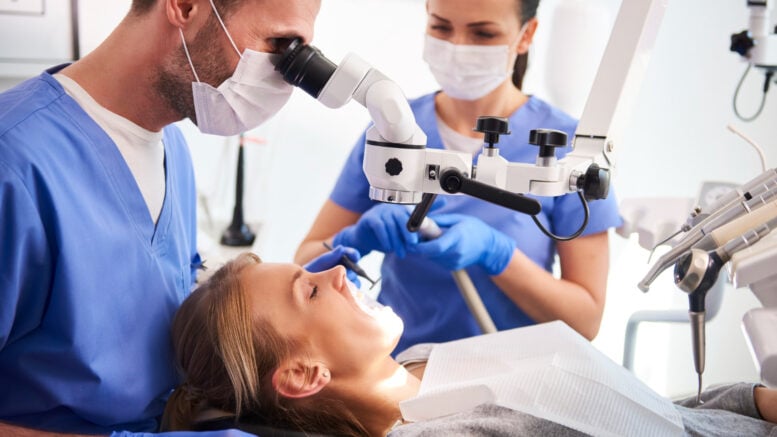The American Dental Association (ADA) recommends that adults and children see their dentist for a checkup and cleaning every six months. However, there are some factors that may affect how often you need to see your dentist.
If you have good oral health and no risk factors for dental problems, you may be able to go longer between visits. Dr. Arthur Jeske, a dentist at the University of Texas Health Science Center at Houston School of Dentistry(profile), asserts that “Regular cleanings and exams can prevent this by eliminating tartar buildup on the teeth, which makes it harder for the patient to clean their own teeth at home.”
However, if you have any of the following risk factors, you should see your dentist more often:
- Tobacco use
- Poor oral hygiene
- Dry mouth
- Diabetes
- Heart disease
- Osteoporosis
- Pregnancy
- Certain medications
You should also see your dentist if you have any of the following symptoms:
- Toothache
- Gum pain or bleeding
- Bad breath
- Loose teeth
- Sores or bumps in your mouth
- Difficulty swallowing
Your dentist will be able to assess your individual risk factors and recommend how often you should see them for checkups and cleanings.
Here are some tips for maintaining good oral health:
- Brush your teeth twice a day for two minutes each time.
- Floss your teeth once a day.
- Use a fluoride toothpaste.
- Eat a healthy diet and limit sugary drinks.
- Don’t smoke or use tobacco.
Seeing your dentist regularly is an essential part of maintaining good oral health. Finding a dentist is always easy googling for the “dentist near me” or using dentist search tools. The better and more prominent number of reviews about the doctor is usually a good sign. Also, it is better for your pocket if the doctor you want to visit accepts your health insurance plan.
Early detection and treatment of dental problems can help prevent more severe problems down the road.
In addition to the research and the ADA’s recommendation of six-month checkups, there are a few other things to keep in mind about how often to see your dentist:
- Children should see their dentist for the first time within six months of their first tooth erupting, or by their first birthday, whichever comes first.
- Children should continue to see their dentist every six months until they are teenagers.
- Teenagers and adults should see their dentist every six months, or more often if they have any risk factors for dental problems.
If you are pregnant, it is essential to see your dentist for a checkup early in your pregnancy. This is because pregnancy can increase your risk of gingivitis, which is a gum infection that can lead to preterm birth and low birth weight.
When to Seek Urgent Dental Care
If you are experiencing any of the following, it is important to seek urgent dental care:
- Prolonged pain in your mouth or around a tooth: Pain is a sign that something is wrong, and it is important to get it checked out as soon as possible. If the pain is severe, you may need immediate treatment to prevent further damage to your tooth or gums.
- Bleeding when you brush or floss: Bleeding gums are a sign of inflammation, which can lead to gum disease. If you are experiencing bleeding gums, it is important to see a dentist to get the problem under control.
- Loose teeth: Loose teeth are a sign of periodontal disease, which is a serious infection of the gums and bones that support your teeth. If you have loose teeth, it is important to see a dentist as soon as possible to prevent them from falling out.
- Receding gums: Receding gums are a sign that the tissue around your teeth is being destroyed. This can lead to tooth loss, so it is important to see a dentist to get treatment to prevent the problem from getting worse.
- Mouth sores that won’t go away: Mouth sores can be caused by a variety of things, some of which are harmless. However, if a mouth sore does not go away after two weeks, it is important to see a dentist to rule out more serious causes, such as oral cancer.
The longer you wait to seek treatment for these problems, the more likely they are to worsen and require more extensive and expensive treatment. So don’t hesitate to make an appointment with your dentist if you are experiencing any of these symptoms.
If you have any questions about how often you should see your dentist, talk to your dentist. They can assess your individual risk factors and recommend a schedule that is right for you.





Be the first to comment on "When Should You Really Go to the Dentist?"